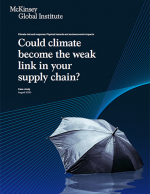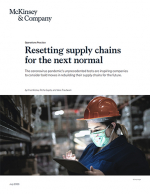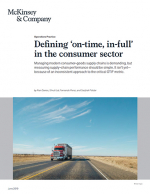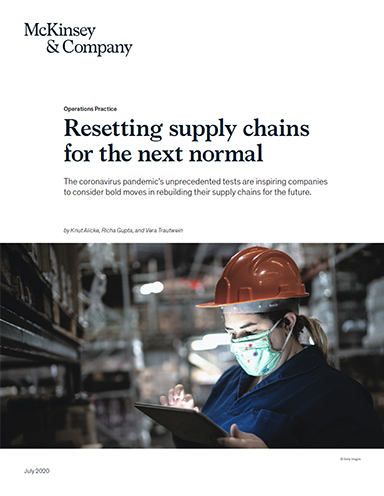McKinsey Survey: Resetting Supply Chains For The “Next Normal”
According to McKinsey & Company, the coronavirus pandemic’s unprecedented tests are inspiring companies to consider bold moves in rebuilding their supply chains for the future.
Rewiring the Supply Chain
At the height of the COVID-19 pandemic, bare supermarket shelves and worldwide shortages of critical personal protective equipment made supply chains headline news.
Across industries, companies had little time to address logistics disruptions, shortages of parts and materials, and sudden swings in demand.
That required many organizations to rewire their supply chains at short notice - all while keeping their people safe and complying with government policies designed to slow the spread of the virus.
Now, as businesses embark on the journey to recovery, supply-chain leaders are telling us that they have no intention of returning to the status quo ante.
In the second quarter of 2020, we surveyed 60 senior supply-chain executives from across industries and geographies, asking them about the impact of the pandemic on their operations and their future plans to make supply chains far more flexible and agile.
Preparing to Drive Change
The overwhelming majority of respondents said that the crisis had revealed weaknesses in their supply chains that they’re now working to address.
For example, 73 percent encountered problems in their supplier base, and 75 percent faced problems with production and distribution.
In the food and consumer-goods industries, 100 percent of respondents had experienced production and distribution problems, and 91 percent had problems with suppliers.
A whopping 85 percent of respondents struggled with inefficient digital technologies in their supply chains. And while just over half of the executives felt that they had been able to manage supply-chain planning following the abrupt introduction of remote working, 48
percent said the changes had slowed down decision–making in planning.
Our group of supply-chain leaders was broadly aligned on the actions they want to take in response to those challenges: about 93 percent of respondents told us that they plan to increase the level of resilience across their supply chain.
What’s Related




Favorites





